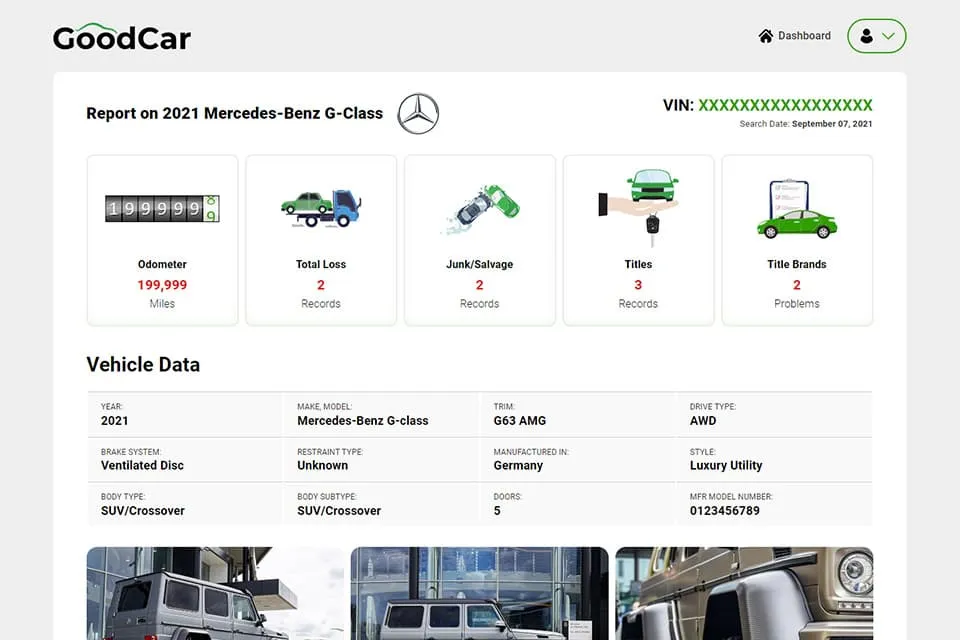Highway Miles vs. City Miles: Which One's Better?

While the miles themselves add up to the same number, it makes a difference where your car is being driven. Whether you are dealing with the frequent stop-and-go nature of driving through a city or the long stretches and high speeds of the highway, each type of mileage will have a different effect on your car. The question is, which mileage type will cause more wear-and-tear on your vehicle, and how will that affect its overall value?
Difference Between Highway Miles And City Miles
There are several major differences between highway miles and city miles, starting with how roads are structured within cities. Because you are dealing with cross-traffic, intersections, stoplights, and many other driving interruptions, city driving means you will be stopping far more frequently. That may make it seem like city miles would be superior, as the lower speeds and frequent stops would seemingly take less of a toll on your car. Driving on the highway, with its higher consistent speeds, would seemingly cause more stress on your engine (as it's being used at a constant rate.) In reality, city mileage can be much more detrimental to your car.
Are Highway Miles Better Than City Miles?

Despite the higher speeds and engine usage, highway miles are much better for your vehicle over time. So why are highway miles better than city miles? There are a few factors that make city mileage more damaging:
- Stop-and-Start: The frequent stoppages that city driving is built around are very taxing on your car, with multiple systems like the brakes and transmission being engaged at a higher rate than on the highway. You'll also be accelerating more often to get back up to speed, meaning your engine will be working harder than it would during the consistent speeds associated with highway driving. You'll also use much more fuel in the city, as consistent highway speeds increase your vehicle's MPG.
- Road Conditions: Because of the more varied and frequent use of city roads, many suffer from damage you don't commonly see on the highway. City roads can be riddled with potholes, and various kinds of debris, not to mention intentional driving impediments like speed bumps. Overall, it's often more likely that your car will suffer increased wear-and-tear by driving on a poorly maintained city road than the relatively smooth road many highways offer.
- Higher Accident Risk: Whether it be the many bumps and scrapes associated with parking, the higher population of drivers that surround you in traffic, or the increased hazards that city driving can bring, driving in the city can be more challenging than traveling on the highway.There is also the risk of theft and vandalism in the city. Since you aren't parking on the highway, you are much less likely to encounter a criminal trying to get in your vehicle. In the city, your car is subject to break-ins and vandalism, making it a riskier place overall to have your vehicle.
How To Know If A Car Has Been Driven On A Highway or City Miles

To ensure you're making an informed decision when buying a used car ,the best way to find out what a car has been used for is by getting a vehicle history report. Vehicle history reports can show you several important details about a car's past, including:
Title Records
Junk/Salvage Records
Insurer "Total Loss" Records
Pricing
Sales History
Problem Checks
Auto Specs
Location History
NHTSA Crash Test Ratings
NHTSA Recalls
Awards and Accolades
Manufacturer Information
They can also show you accident history and odometer readings, which are great ways to determine where a vehicle has been driven. If the majority of accidents a car has experienced are in the city, you can reasonably assume that is where the vehicle was primarily driven. Odometer readings are equally valuable; high mileage combined with that car's location history can help you determine if the car was used for long highway mileage or shorter city mileage.
Highway Miles vs. City Miles Frequently Asked Questions
Are Highway Miles Better for Tires?
Overall, highway miles are much better for your tires. The roads on highways are in better condition due to regular maintenance, and they often degrade at a much slower rate than city roads. The wear that your tires experience on highways is also consistent, unlike the frequent stoppage and turns associated with city driving. Of course, driving on highways can lead to a higher overall mileage, but when it comes to minimizing outside tire wear, if the mileage is equal between city and highway driving, it's almost always preferable to have highway miles on your tires.
Are Highway Miles Easier on Oil?
Highway miles are usually better for your oil due to the reduced stress on your engine during highway travel. In the city, you will constantly be slowing down, stopping, and accelerating to deal with traffic flow and the behavior of other drivers. You travel at a consistent speed and steady RPM range on the highway. This means that your engine isn't having to deal with changes in utilization as much. Therefore, your oil will last longer than it would in the city. Highway driving also puts less stress on your transmission and drivetrain, potentially extending the interval between oil changes.
Is Gas Mileage Better on Highway or City?
Your gas mileage will almost always be better when driving on the highway. Part of this is due to the consistent speeds you maintain when driving on the highway. Instead of stopping at red lights and stop signs, then accelerating to get back up to the speed limit, highway driving mostly involves following a straight path at a set speed. This saves you from that constant acceleration associated with city driving, which drains fuel at a higher rate. The U.S. The Department of Energy estimates that the best speed to maintain to achieve maximum fuel efficiency is between 50 and 60 m.p.h.; however, some highways may have higher speed limits than this. Sticking close to this range is the key to better gas mileage.
FREE Vehicle Search
- Accidents
- Problem Checks
- Title Records
- Recalls
- Values
- Specs
-
InfoPay, Inc. (dba GoodCar) is an Approved NMVTIS Data Provider
-
-































